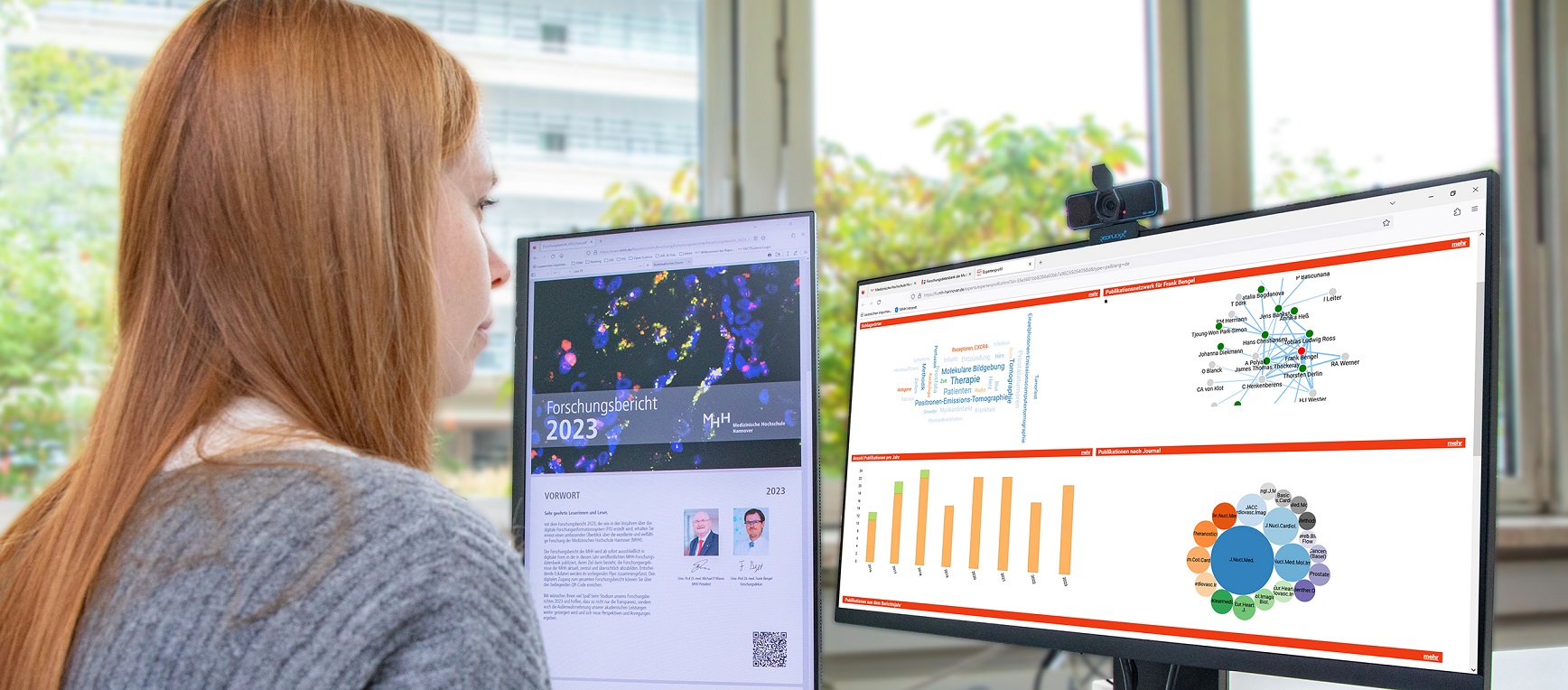MHH puts external research database online as part of the research information system.

Now also visible externally: the MHH research database. Copyright: Karin Kaiser/MHH
Who is researching which topic, what projects and publications are there at MHH and who is cooperating with whom? The research information system (FIS) answers these questions. In order to present the research expertise of the university in a transparent, up-to-date and clear way, the database collects information on research activities such as third-party funded projects from the electronic third-party funding records and publications from the reports in the university bibliography and brings them together in a central location. The more up-to-date publications are reported in the university bibliography, the more up-to-date they appear in the CRIS. ‘With the CRIS, MHH is also meeting its goal of increased transparency in research,’ says Alica Wollmann, IT specialist at MHH Library and reporting officer. The CRIS has been available to all employees for more than a year. Here they can view their research information at MHH and edit their data. Previously, the information could only be viewed internally. Since September 2024, an external research database has also been available, which interested parties can use to find out about the research activities of MHH employees, read the annual research report or simply access the key data in the associated digital flyer via the homepage.
Better networking thanks to expert profiles
Access to the external research database is open to everyone. To view the internal area, researchers must log in using their MHH user ID. They can then add further information, for example, complete projects with a description or cooperation partners, enter further research activities or activate their own expert profile so that it can also be accessed outside MHH. ‘I have already created my profile because it is important for me as a scientist to be visible in the research community,’ says MHH Research Dean Professor Dr Frank Bengel. The expert profile offers the opportunity to highlight important projects and publications. Graphic elements are also available that can be used to clearly display one's own publication network, keywords by publication and projects, publications by journal and frequency, or the number of publications per year. Those who share their profile automatically create a link that can be forwarded externally. The research dean is convinced that this pays off. ‘The digital research information system is a very good opportunity to present yourself and network within and outside MHH.’
ORCiD-ID simplifies attribution
To make their work easier, Alica Wollmann recommends that researchers create an ORCiD-ID (Open Researcher and Contributor ID). ‘Some journals require this personal identification number anyway.’ The ORCiD-ID also simplifies work for researchers, especially if they have common names such as Thomas Müller or Susanne Fischer. The ID allows publications to be clearly and automatically assigned without having to check whether the information is complete. Those who need help can register for an ORCID training course. ‘We cover everything you need to know about completing the research profile in the research information system, from assigning publications using the ORCiD ID to processing projects and activating the expert profile.’
For more information about the FIS and the training programme, please visit https://www.mhh.de/forschung/fis. The training programme dates can be found here. If you have any questions, please contact fis.mhh@mh-hannover.de.
Text: Kirsten Pötzke